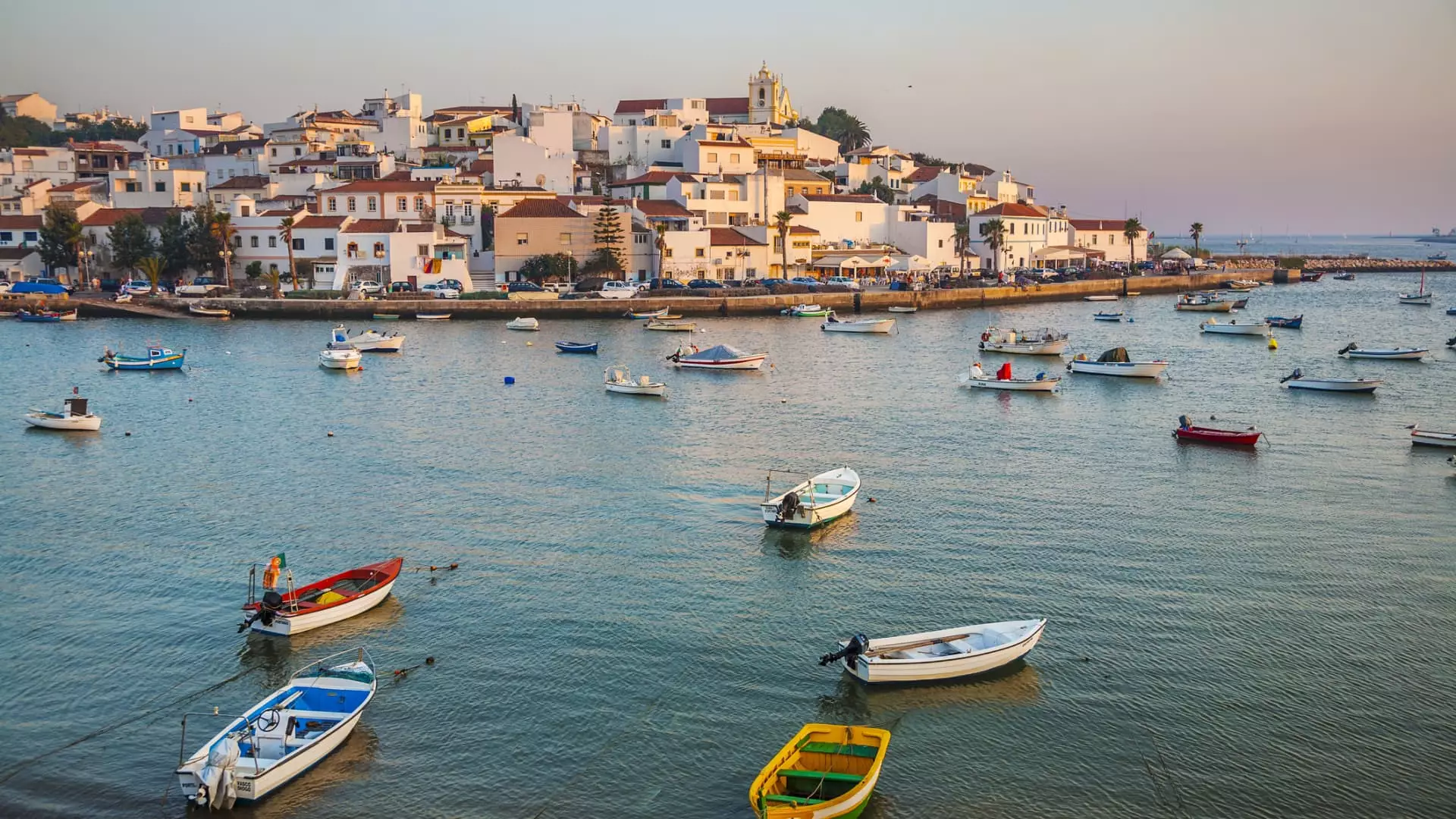As the political environment in the United States grows increasingly polarized, a significant number of affluent Americans are contemplating leaving their homeland. This trend has been ignited further by the upcoming elections, raising concerns about potential political and social discord, regardless of the outcome. Immigration lawyers and advisors specializing in high-net-worth families are noting an unprecedented surge in inquiries related to overseas residency and citizenship. The movement represents not merely a trend but a calculated response to a narrative that extends beyond politics, reflecting deeper anxieties about safety, stability, and future prospects.
The current fervor among wealthy Americans seeking second passports or long-term residencies marks a departure from typical post-election sentiments. According to Dominic Volek, a key figure at Henley & Partners, there’s been a dramatic uptick in the demand for services that facilitate international migration, with Americans now comprising 20% of their client base—marking the first time they outnumber other nationalities. Reports indicate that inquiries have surged by over 30% in just one year, highlighting an urgent desire among the wealthy to secure alternate living arrangements far away from what they perceive as an unsettled and unstable America.
David Lesperance, managing partner at an international tax and immigration firm, corroborates this assessment, revealing that requests for assistance related to moving abroad have tripled compared to the previous year. Such statistics underscore a major shift in the motivations behind migration—shifting from tax strategies to personal safety and social stability. With 53% of American millionaires indicating a likelihood to leave following the elections, the anxiety has clearly permeated this demographic.
Interestingly, the trend is particularly pronounced among younger wealthy individuals. A striking 64% of millionaires aged 18 to 29 expressed intentions to seek citizenship through investment programs in foreign countries, demonstrating a generational shift in priorities. This younger cohort appears to be increasingly proactive in exploring opportunities that allow them to build lives outside the traditional confines of American society, viewing options like ‘golden visas’ as pragmatic pathways to safety and prosperity.
While discussions of relocating for economic reasons have been commonplace among the elite, the rising threats of violence, political unrest, and social discord have propelled these conversations into actionable steps. The pandemic has only propelled this desire, with many affluent individuals viewing overseas relocation as an opportunity for better lifestyles, lower costs, and proximity to family.
The impending election is further complicating this landscape for wealthy Americans. Many clients express apprehension about a range of issues, from the potential for unrest if the election does not go favorably for certain political factions, to worries regarding proposed tax changes that could affect their financial stability. In particular, concerns about proposed taxation on unrealized capital gains have driven some wealthy individuals to explore alternatives to U.S. citizenship, even when the likelihood of such legislation passing remains slim.
Legal experts highlight additional fears that plague affluent families, including school shootings, systemic violence, antisemitism, and the escalating national debt. The amalgamation of these factors catalyzes a push for securing alternative options that promise greater security and a better quality of life.
For those considering relocating, Europe emerges as the primary destination of interest. Nations such as Portugal, Malta, Greece, and Spain are especially appealing due to their favorable residency and investment programs. The allure of European countries has persisted over many years, buoyed by a willingness among wealthy Americans to invest significantly in properties or funds to gain residency rights.
However, the dynamics of these immigration programs are rapidly evolving. Recent backlash against golden visa schemes, such as in Portugal, signals changing attitudes among policymakers, and consequently, the rules governing these programs are becoming more stringent. For example, Portugal recently increased its minimum investment thresholds and removed certain categories of residential properties from eligibility criteria.
Consequently, other options like Malta’s citizenship by investment program continue to thrive, despite its higher costs. The country offers a pathway to not only Malta but also European Union residency, thus remaining a primary choice for affluent American citizens seeking stability.
The climate surrounding affluent American migration is shifting dramatically, fueled by an amalgamation of political trepidation and personal aspirations for improved security and lifestyle. As uncertainties loom over the upcoming election, it is clear that the desire for a safe and stable environment is paramount. With lawyers and immigration advisors beset with a surge of inquiries and applications, one can only foresee a continuation of this trend—whereby the wealthy increasingly seek out alternative havens abroad as a hedge against their best interests in an increasingly divided nation.

